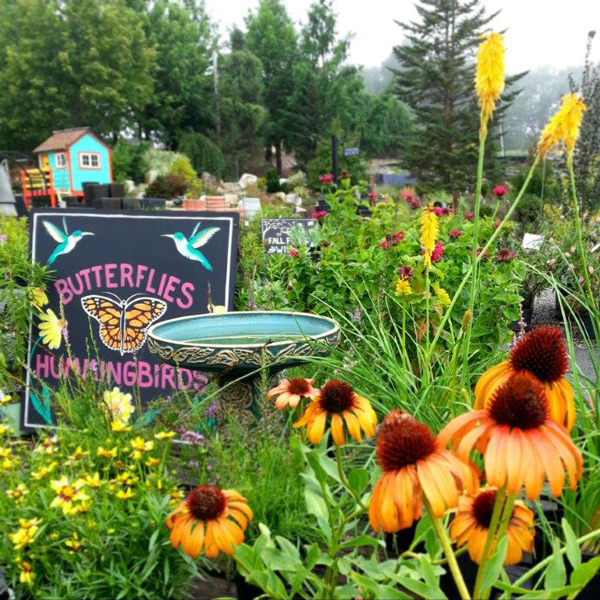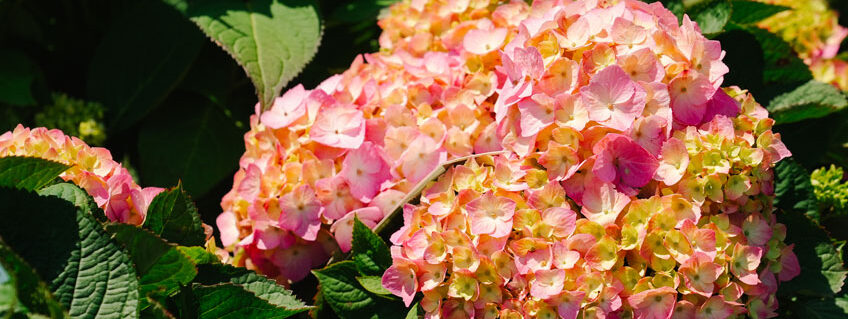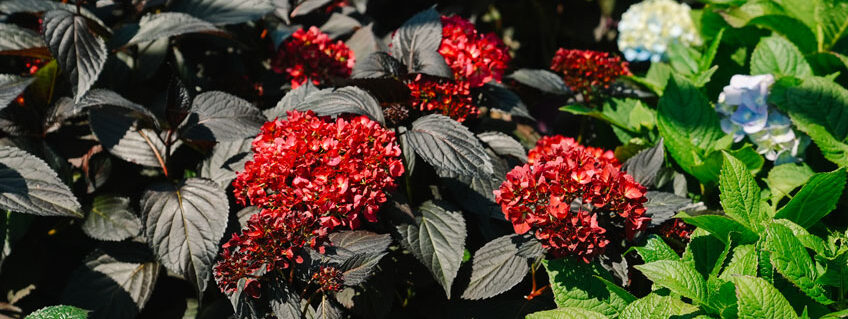Weston Nurseries produces over 160 different perennials. A “perennial” is any plant that lives more than two years. Commonly, it refers to hardy herbaceous plants grown primarily for their flowers or ornamental foliage that die back to the ground in winter. Some may be woody plants or sub-shrubs, while others bear semi-evergreen leaves. There are perennials for almost any conditions: dry soils, the seashore, shady spots, wetlands, to name a few. However, the condition most often required is “rich, well-drained soil”.
Soil preparation is the key to successful perennial gardening. First, remove all weeds. The three most effective methods are: applying chemical weed killers, starving the weeds by covering them with black plastic or newspapers, or digging them out by hand. Completely removing weeds in the beginning can save hours of future weeding. Perennial weeds should be removed chemically to ensure root systems are destroyed.
Next, amend the soil with organic matter in the form of compost, peat moss, humus, or composted manure. It is next to impossible to add too much organic matter, so be generous! Use a spade or rototiller to work the soil and amendments to a depth of at least ten inches. The more time and effort put into preparing your planting bed, the better your results will be for years to come.
Planting of the garden is best done on an overcast day, thereby lessening stress to the plants. Dig a hole just as deep as the container the plant was grown in and twice as wide. Place a handful of bone meal or superphosphate in the hole and incorporate it into the soil. Take the plant out of the container and gently loosen any roots that have begun to grow in a tight circle. Position the plant in the center of the hole, backfill and water.
Watering properly is critical to ensure the good health of your garden and depends on several variables. Most obvious is the amount of rainfall the plants receive. Also to be considered are the types of plants and the quality of the soil. It’s always better to check the soil before watering than to water on a routine schedule. Remember to water deeply. This encourages deep roots, giving plants access to deep-seated moisture in the soil and protecting them in times of drought. It’s best to water perennials with a soaker hose or drip irrigation. Sprinklers and hand watering can promote fungal diseases by keeping the foliage wet.
Mulching conserves soil moisture by reducing evaporation and thirsty weeds. Buckwheat hulls, cocoa shells, bark mulches and pine needles are all acceptable forms of mulch for perennials. Mulch should be 2″ to 3″ deep and tapered toward but not touching the plant base.
Pests and Diseases of perennials are remarkably few. Learning to spot problems in the early stages minimizes damage to the plants and decreases the need for chemical controls. A few of the more common problems are: powdery mildew, botrytis blight, slugs, aphids, and mites. Accurate descriptions of these problems can be found in The Ortho Problem Solver. Both chemical and organic measures can control most problems.
Routine Maintenance is essential to keep your perennial garden looking its best. A few basic steps, when done with proper timing, will save a great deal of effort.
Weeding: Weeds should be pulled as they appear rather than waiting until they take over the garden and set seed.
Deadheading: Remove spent flowers to extend the bloom season for many perennials. Instead of producing seeds, the plant will channel its energy into more flower, leaf and root production. Staking is almost an inevitable part of perennial gardening. Many tall plants such as delphinium and aconitum require staking to be sure that their flower spikes are protected from wind and rain. Other perennials such as phlox and asters benefit from supports which provide improved air circulation.
Fertilizing: Products such as Plant-O-Ganic, Country Gardener, Plant-Tone, or Osmocote (a slow release product) are good choices and should be applied in spring. Spring is also a good time to apply an annual top-dressing of compost, adding organic matter to the soil. Fall Clean-up and
Winter Protection: After the first hard frost, it’s time to cut down any remaining plant material and dispose of it. This discourages any over-wintering diseases and insects as well as nesting mice. When the ground has completely frozen, a layer of mulch such as salt marsh hay or evergreen bows should be spread over the garden to prevent the freeze-thaw cycle from heaving plants.






